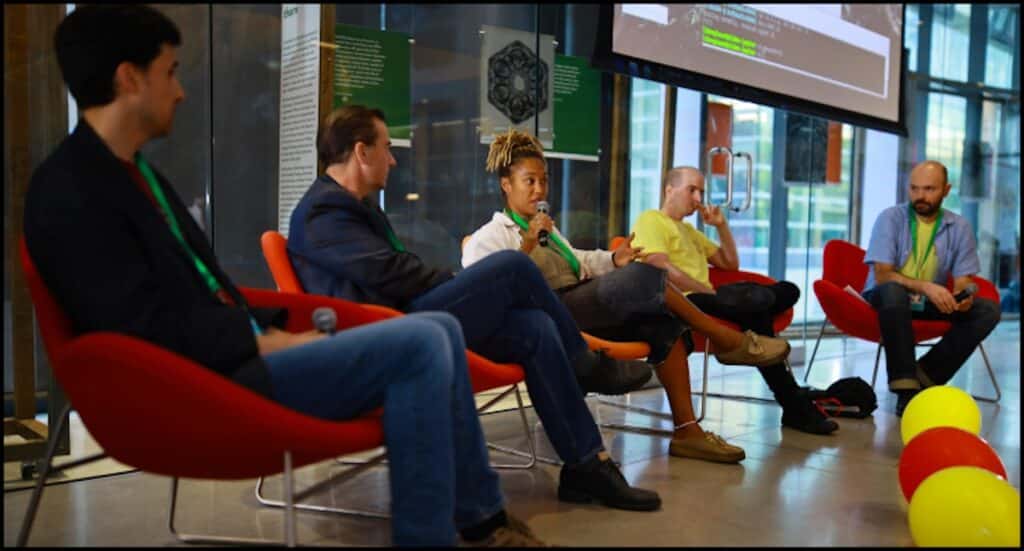The Free Software Foundation (FSF) turned forty and used the milestone to set a forward-leaning agenda: a new president, a mobile freedom initiative dubbed LibrePhone, and 2026 criteria for evaluating free (as in freedom) machine learning. The announcements framed a simple message for the next decade: if everyday computing happens on the phone and increasingly through AI, software freedom must meaningfully exist in those domains—not just on the desktop.
“My goal is to strengthen the FSF’s ability to counter new threats to user freedom—and bring more people than ever into the movement,” said Ian Kelling, introduced as the FSF’s new president during the FSF40 celebration.
Continuity with a new mandate
FSF40 opened with a panel featuring Christina Haralanova, Geoffrey Knauth, Gerald Jay Sussman, Ian Kelling, and Richard M. Stallman. The group reiterated the foundation’s mission—to ensure that users can use, study, share, and modify software—while naming the modern battlegrounds: locked-down mobile ecosystems, opaque firmware, restrictive app stores, platform lock-ins, and non-auditable AI systems.
Community voices underscored that the movement’s strength is not institutional but grassroots. Veteran contributors Amin Bandali (GNU, EmacsConf, Debian, Trisquel, FSF SysOps), Corwin Brust (Savannah Hackers, Emacs), and Panos Alevropoulos (Licensing & Compliance Lab, End Software Patents) emphasized the day-to-day labor that sustains free software and its legal/educational scaffolding.
LibrePhone: a credible path to freedom on mobile
FSF executive director Zoë Kooyman unveiled LibrePhone, a partnership with long-time GNU developer Rob Savoye, aimed at bringing full software freedom to mobile computing. Rather than “just another distro,” LibrePhone targets the full stack and policy surface that determines whether users actually control their devices:
- Boot and firmware: auditable where hardware permits, with anti-lockdown policies and user-centric controls.
- Distribution and store: freedom-respecting curation and transparent policies (no coercive contracts, no invasive tracking).
- Toolchains and reproducibility: verifiable builds and supply-chain integrity.
- Hardware path: identify practical reference platforms and build a realistic pilot instead of reinventing what allied projects already do well.
“Everyday computing happens on the phone,” Kooyman said. “LibrePhone can expand software freedom to many more people worldwide.”
The project’s success will hinge on alliances with existing communities—kernel and base systems, F-Droid, privacy-focused OSes—so that the FSF steers policy and freedom guarantees, not a parallel universe of redundant components.
“Free ML” criteria: from code to data, models, and provenance
The FSF also previewed work on public criteria for free machine learning—a framework to evaluate AI projects beyond the “open” label and toward freedom and auditability. Early themes include:
- Licensing scope that covers not just code, but datasets, weights, and training artifacts.
- Provenance and traceability for training data and pipelines.
- Reproducibility and portability of models and toolchains.
- Meaningful audit—users and researchers must be able to study, verify, and modify the system in practice.
By publishing clear, testable criteria, the FSF aims to give governments, universities, and startups a reference point for aligning innovation with user freedom—and to push back against “source-available” or “open-weights” practices that don’t deliver control or transparency.
Local first: LibreLocal chapters and distributed events
FSF40 also reinforced a local-first strategy. Leaders from LibreLocal—Delta Shahinpoor, Ryan Petroff, Dakota, and Zack—shared ground truths: small groups with concrete goals, classroom and maker-space engagement, and persistent challenges around resources and continuity. The plan for 2026 is to complement major conferences with accessible, sustained local meetups that build capacity where people live.
Strategic alignment: EFF, F-Droid, Sugar Labs
A closing panel with Paige Collings (EFF), Marc Prud’hommeaux (F-Droid), Devin Ulibarri (Sugar Labs), and Greg Farough (FSF) connected the dots:
- EFF litigates and advocates for privacy and digital rights;
- F-Droid defends mobile freedom with a libre app ecosystem;
- Sugar Labs advances free software in education;
- The FSF anchors the ethics, licenses, and policy baseline.
The result is a broader vector: from legal defense to mobile distribution and curriculum, each reinforcing the others.
Why this matters to the tech industry
- Mobile is the new PC. Without credible software freedom on phones, the victory on desktops is incomplete. LibrePhone tackles both the technical and the policy levers (boot policies, app stores, distribution) that actually decide who is in control.
- Auditable AI is a market requirement. With models and training data shaping user experiences, clear criteria for licensing, provenance, and reproducibility will become reference points for procurement, research, and regulation.
- Network effects from the ground up. LibreLocal and alliances with EFF, F-Droid, and Sugar Labs extend impact—from courtrooms and standards rooms to app catalogs and classrooms—driving demand for interoperable, freedom-respecting technology.
What to watch in 2026
- LibrePhone roadmap: reference hardware, boot/firmware policies, distribution and freedom-compatible store mechanics.
- Draft “free ML” criteria: concrete requirements for weights, datasets, code, and pipelines—and how they map onto existing licenses.
- LibreLocal scaling: can chapters grow without bureaucracy while staying pragmatic and welcoming?
- Interoperability wins: practical synergies with F-Droid (app delivery), EFF (policy and litigation), and Sugar Labs (education).
A 40th with a compass
“Neither the FSF nor the free software movement would be here without countless people working tirelessly over forty years,” said Miriam Bastian, FSF program manager.
The birthday was both celebration and execution call: if the next cycle is defined by mobile and AI, then freedom must ship as products, criteria, and communities—not just manifestos.
About the FSF
Founded in 1985, the Free Software Foundation defends users’ rights to use, study, modify, and share software—promoting GNU and GNU/Linux, free documentation, and public awareness of the ethical and political dimensions of software. Learn more at fsf.org and gnu.org.

